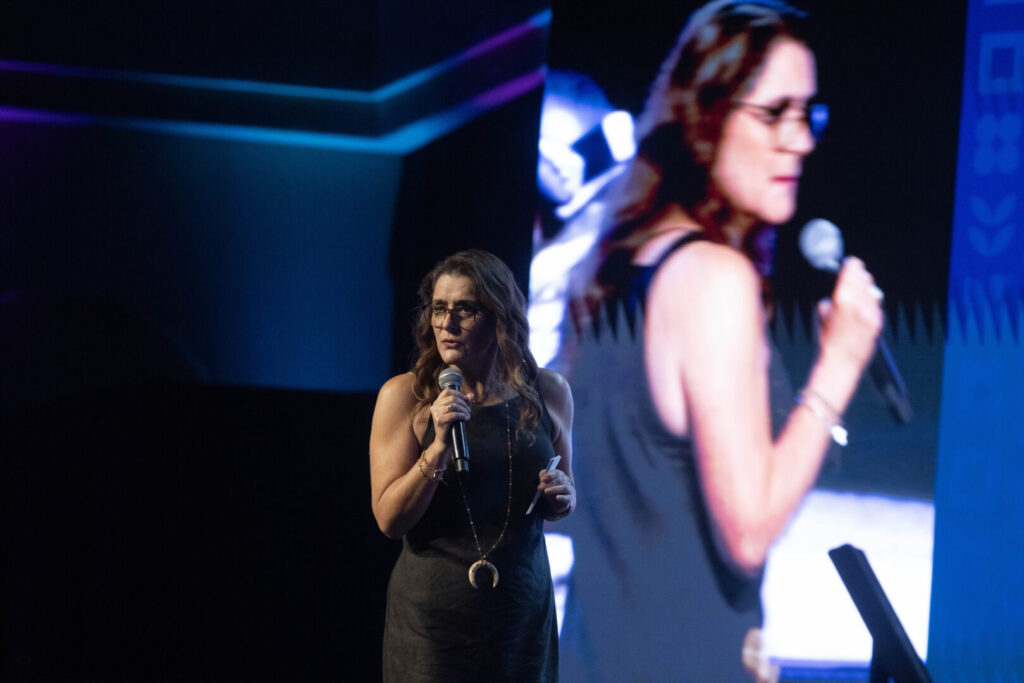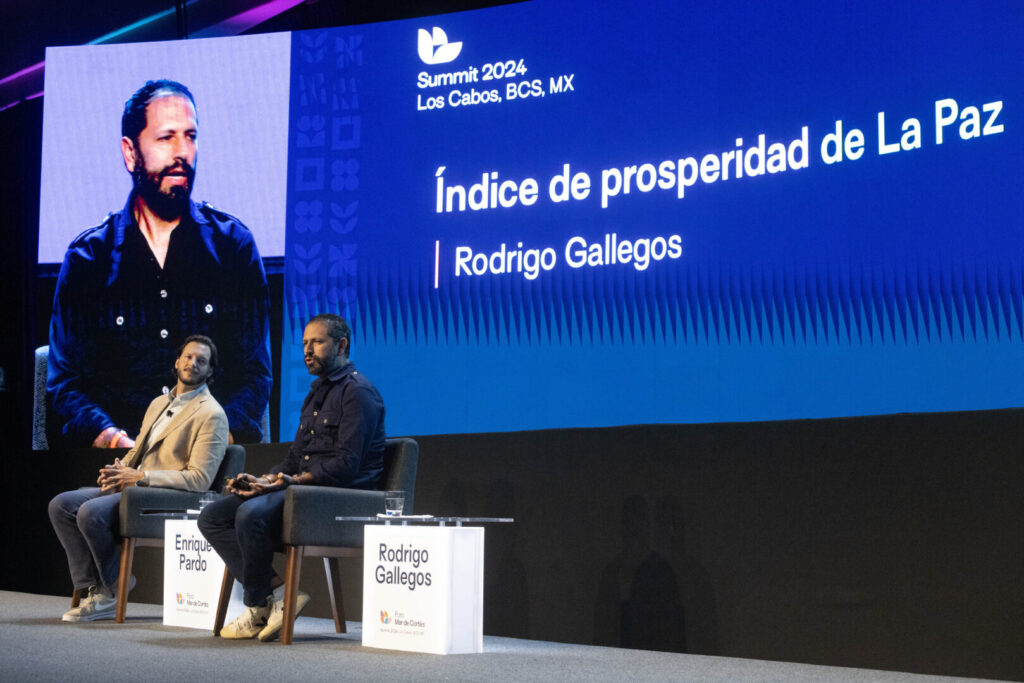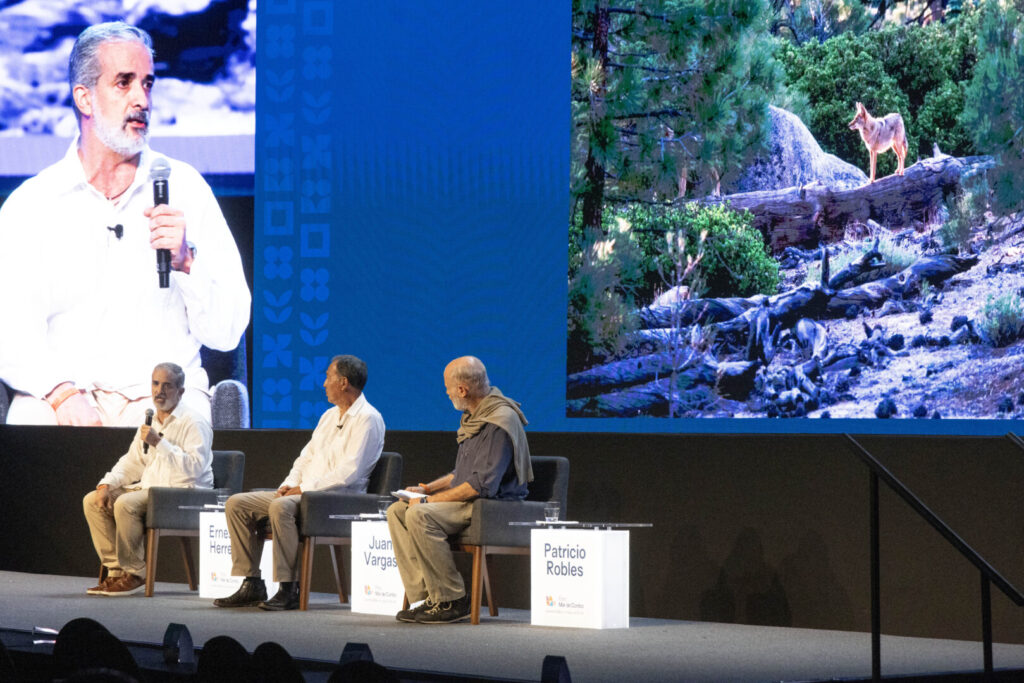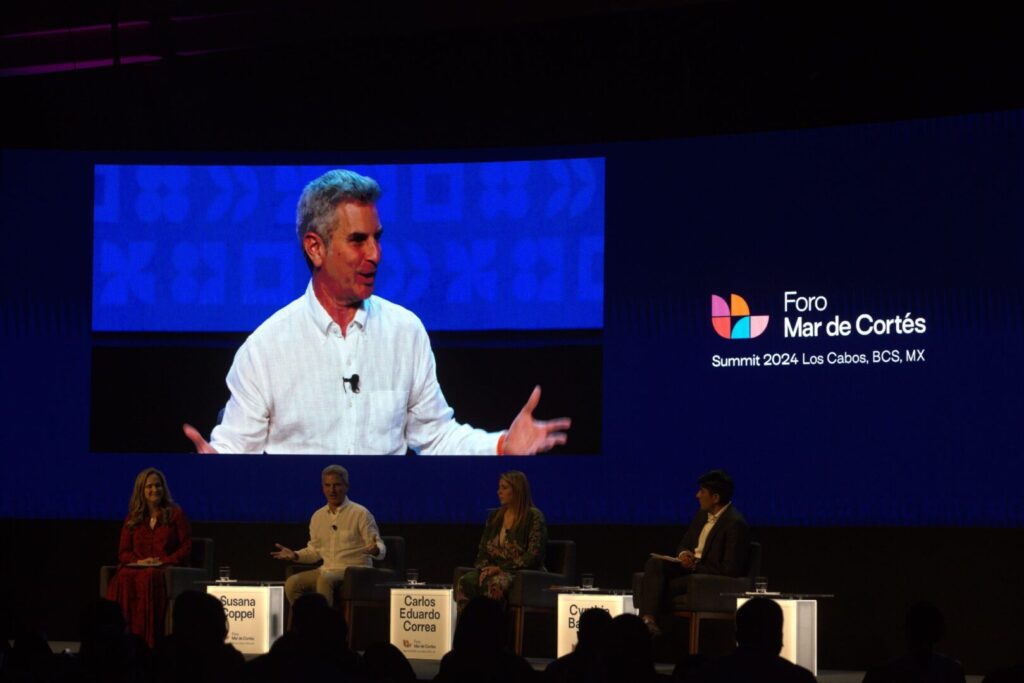Los Cabos, BCS. _ 18 years ago, María Ugarte Luiselli took up the challenge posed to him by a U.S. citizen: to get air compressor harpooning, an illegal fishing gear, banned and create a citizen's group to patrol the Bay of La Paz to avoid illegal fishing.
During the Summit 2024 Cities with a Future. No fear of actionthe current Executive Director of the Citizen Observer Network (ROC) participated in a talk in which he narrated this experience and the way in which this organization has been able to build over all these years the illegal fishing data base world's most detailed, as has been recognized by universities of Canada y Australia.
"That's how this adventure began, in a man's world, in a world of fishermen, of marine biologists, of scientists, of NGO's, all against each other and giving the worst predictions of what we wanted to do," he recalled.
"We went looking for two illegal fishermen, one of them very famous because he was skilled, and we convinced him to work for us in this vigilant citizen observatory. He obviously had to stop poaching and was offered certain favorable working conditions that encouraged him to give it a try."
They immediately hired a biologist and thus the first team of the citizen observatory was formed and against all odds they put the first panga in the water to start the surveillance of the Bay of La Paz in the evenings.
"We don't have any competition, we can't be at sea or get close, but nobody likes to do things when they are watching. At first, just by being, we had a deterrent effect." he said.
Ugarte Luiselli detailed that in the Espiritu Santo Island had a record of 48 vessels carrying out illegal fishing, but due to the presence of vigilant citizens, they began to move to other areas and the number decreased.
"They were already afraid of us, but that was not the best achievement. The fishermen themselves started to come forward to denounce through us," he said.
During the talk, ROC's Executive Director showed a video of a surveillance operation involving an officer from Profepa and four elements of the Secretary of the Navy. The captain of the boat in the video is José Luis, that poacher-turned-citizen vigilante.
"That is something we are very proud of. Yes we can, the joke is to have a plan and we can do it," he said.
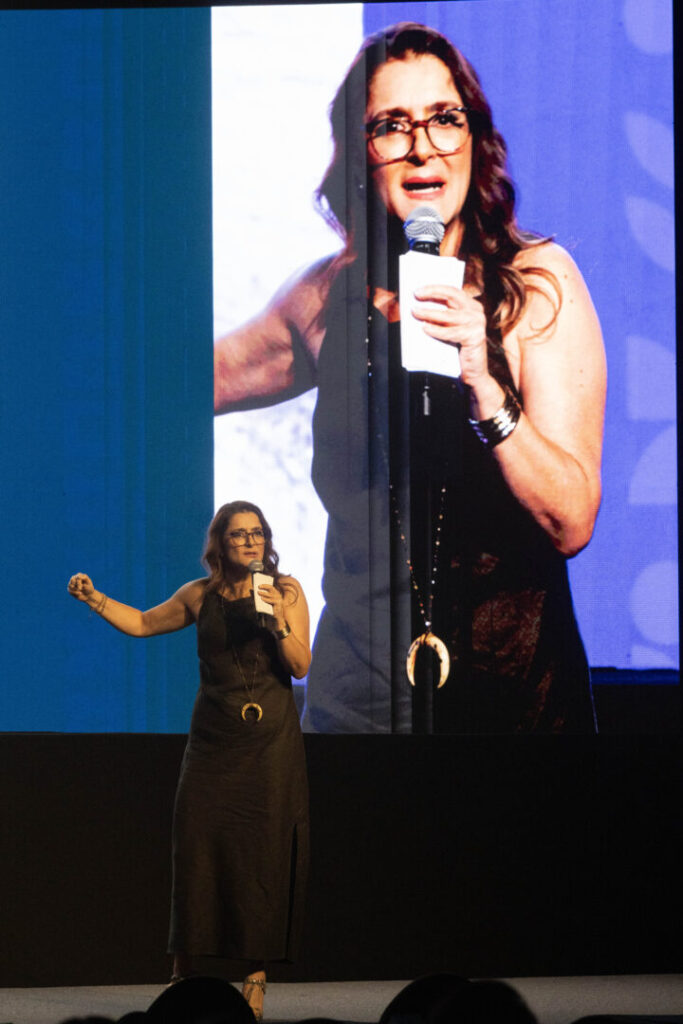
Data collection and systematization is key
Once they had the backing of the authorities during the tours, the work of the ROC was more focused and more intelligent, thanks to the data they have managed to collect and systematize. This allows them to plan operations with precision and present them to the authority when they have a level of certainty in which they believe they will achieve a positive result, he said.
"We have, over the last 15 years, gone back and forth 6 times to the moon on trips in the Bay of La Paz, up to a little above San Jose and down to Punta Arenas. In most cases we are there at night, which is when the illegal fishing is at its strongest," he said.
Ugarte Luiselli stressed that estimates are that between 25 and 30% of the world's fishery is not reported, but there is no data on the poaching to try it.
However, she said proudly that institutions such as Simon Fraser Universityof Canada, and the James Cook UniversityAustralia, have acknowledged that ROC has succeeded in building the illegal fishing database which has greater detail.
"Today in the Bay of La Paz and where we are, we know what, how, when, with what type of moon, at what time of the year, in what month, what things happen. And that is what we can use to carry out the most successful operations, because we no longer do that kind of vigilance that we used to do with just taking data. Today we are playing it safe, but we have also realized that without data there is no way to be as specific or to be as successful in anything," he stressed.
He commented that ROC has already trained other fishing camps and even other regions of the country to do the same. civic surveillance with an equal, systematized model and with the collection of data that can then be measured and compared.
"And that is the objective of ROC, to be able to replicate these vigilant citizen cells throughout the Gulf of California. We have a sea that is the only one on the planet that belongs to a single country and in this forum are the five states that converge in the Gulf of California," he said.
"We have a proven model and the possibility of putting together a tailor-made suit, depending on what you are concerned about that puts the natural heritage of this area of the country at risk, either on land or at sea."
Ugarte Luiselli stated that the region's citizens are key agents of change and can do so because they have legitimacy, relevance and permanence.
"It's our area, it's our world, we are custodians of the natural heritage of this region. We can do it, we just have to want to do it," he encouraged.

